Will Brazil’s New President Usher In a Return to Dictatorship?
The signs aren’t looking good for the South American nation’s future, and they point to similar problems in the U.S.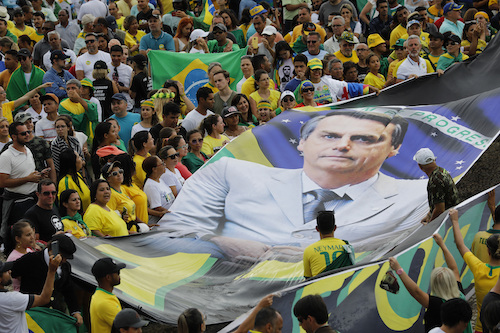 Brazilians unfurl a banner featuring the image of President Jair Bolsonaro in Brasilia, Brazil, on his inauguration day. (Silvia Izquierdo / AP)
Brazilians unfurl a banner featuring the image of President Jair Bolsonaro in Brasilia, Brazil, on his inauguration day. (Silvia Izquierdo / AP)
Jair Bolsonaro began his tenure as president of Brazil in the new year exactly as human rights and environmental activists feared he would—by issuing executive orders aimed at indigenous groups, Afro-Brazilians descended from enslaved people and the LGBTQ community. He declared that his inauguration meant “liberation from socialism, inverted values, the bloated state and political correctness.”
Like his counterpart in the United States, Bolsonaro enjoys making pronouncements over social media, using his Twitter account prolifically. Many fear that Brazil’s rabidly right-wing, pro-business, pro-gun and pro-military president will usher in an era reminiscent of the two-decade-long dictatorship, the horrors of which are still fresh in the memories of many Brazilians. Bolsonaro has even spoken admiringly about the years between 1964 and 1985, describing the dictatorship as “a very good period.”
Ivo Herzog is the board president of the Vladimir Herzog Institute, named after Ivo’s father, a Brazilian journalist who was tortured and assassinated during the dictatorship. In an interview from Sao Paolo, Herzog explained that “the best way for you to understand Bolsonaro is that his mentor is Donald Trump.” Indeed, Bolsonaro has echoed much of Trump’s racist and misogynist rhetoric and has mirrored his agenda on the environment, business, the military and even, to an extent, foreign policy. His slogan—“Brazil Before Everything”—mimics Trump’s “America First” mantra. Trump is only too eager to embrace him, tweeting on the day of Bolsonaro’s inauguration, “The U.S.A. is with you!”
Within hours of taking office, Bolsonaro transferred the authority for land protections of indigenous communities away from the National Indian Foundation (known as FUNAI by its Portuguese acronym) to the Ministry of Agriculture. Herzog explained that this was a “conflict of interest,” as agribusinesses are more interested in farming than in protecting the rights of indigenous people. The new minister of agriculture, Tereza Cristina Dias, is the former chair of the farm caucus.
An attack on Brazil’s indigenous people is, by extension, an attack on the Amazon rainforest. Indigenous tribes have historically been stewards of the precious land that functions as a massive, planetary-scale carbon sink. Dinamã Tuxá of Brazil’s Association of Indigenous Peoples told Reuters, “We are very afraid because Bolsonaro is attacking indigenous policies, rolling back environmental protections, authorizing the invasion of indigenous territories and endorsing violence against indigenous peoples.”
Seemingly as racist as Trump, Bolsonaro has included Afro-Brazilians in his targeting. In fact, he has a history of virulently anti-black racism. Among those whose land rights he has weakened are the descendants of enslaved Brazilians. Herzog explained that Bolsonaro also is attempting to rescind racial quotas at universities, which were put in place only in the past decade to address systematic racism.
The history of Brazil’s slave trade—like that of other nations—is a sordid one. Millions of people were trafficked from Africa to Brazil, and it was the last country in the Western Hemisphere to abolish the institution. But racism stemming all the way back to slavery persists in Brazil. For example, according to Herzog, in Sao Paolo, where he lives, “The police in 2017 killed over 900 people; 70 to 80 percent of those were Afro-Brazilian, most of them young men.”
Bolsonaro’s racism goes hand in hand with his homophobia. On his first day in office, he disempowered the Human Rights Ministry’s ability to monitor the rights of the LGBTQ community. Brazil’s new president hails from a powerful evangelical church—an institution that poured money into electing him and has promoted a homophobic agenda.
He also has unleashed controls on gun sales, once more taking after his American counterpart. Brazil, second only to the U.S. in the number of gun deaths each year, is awash in guns. Bolsonaro’s answer to the scourge of gun proliferation is to flood the market with more guns. In fact, the National Rifle Association—America’s largest gun lobby group—appears to have as much a hold on Bolsonaro in Brazil as it does on Trump in the U.S. Herzog also warned that Bolsonaro has “empowered several state governors to use violence against crime.” In other words, police are encouraged to shoot at suspects first and ask questions later.
Corporations love Bolsonaro, and he appears to love them back, with his announcement on Twitter of a plan to privatize a number of airports and seaports. Brazil’s stock markets have soared since he took office, leading him to declare in the first week of the year that “Brazil is the best stock market in the world.”
Bolsonaro is not only ushering in a frightening new chapter in Brazil, he is dangerously ignorant—another similarity to Trump. According to Herzog, “[H]is knowledge is very limited on everything,” an inference based on the fact that he refused to participate in debates during his campaign. Additionally, when reporters questioned Bolsonaro on his policies, he often demurred to his future Cabinet members for details. “It’s very scary to have the leader of a nation the size of Brazil as someone who knows so little about our country and about the world,” Herzog said.
So how did Bolsonaro become president? Again, the answer is eerily linked to Trump. Herzog explained that social media played a huge role in disseminating propaganda during the election campaign and tilting the election toward Bolsonaro—just as it did in the U.S. “The result of this election is due to social media, one hundred percent,” he said. In Brazil’s case, the popular messaging software WhatsApp was the primary means of sharing misinformation. But, according to Herzog, Bolsonaro’s campaign also hired Cambridge Analytica—the now-defunct British firm that Trump and the Brexit campaign successfully deployed—to help him win. So prevalent was the “fake news” that “people lost their reference point for truth,” Herzog said. A majority of Brazilians were convinced that a far-right president harboring the same ideology as that of the loathed dictatorship was preferable to the liberal leftist Workers Party that held power under the now-imprisoned Luiz Inácio Lula da Silva and his successor, Dilma Rousseff, until her impeachment.
When I asked Herzog whether he fears a return to the type of repression seen under the dictatorship, he said, “Actually I think it might be even worse, because during those dark days, the enemy was well known. We had a dictatorship put in place.” Now, he explained, “You have the same people with the same ideology, but they have the legitimacy of the vote.”
Your support matters…Independent journalism is under threat and overshadowed by heavily funded mainstream media.
You can help level the playing field. Become a member.
Your tax-deductible contribution keeps us digging beneath the headlines to give you thought-provoking, investigative reporting and analysis that unearths what's really happening- without compromise.
Give today to support our courageous, independent journalists.

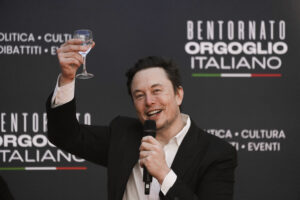
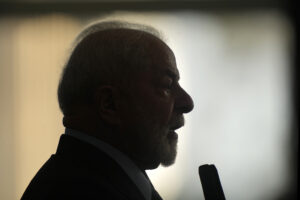
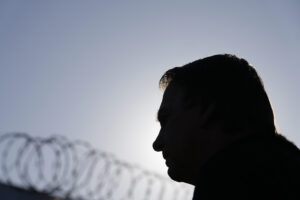
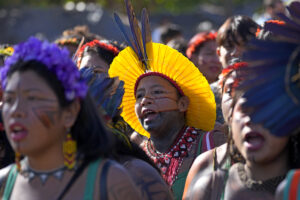
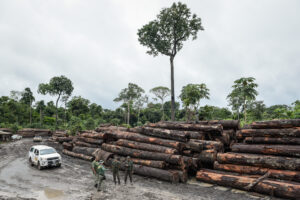



You need to be a supporter to comment.
There are currently no responses to this article.
Be the first to respond.